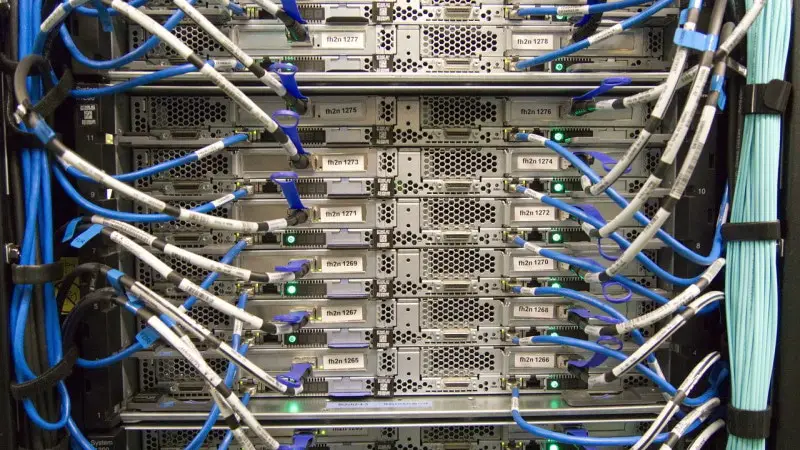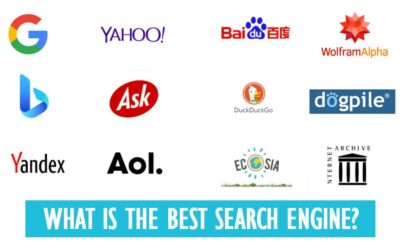Capital Expenditure vs Operating Expenses
Discover how these two different types of business expenditure affect your balance sheet, income tax and cash flow.
Plus, which is right for your business?
Every business incurs costs or expenses – from general and administrative expenses such as purchasing office equipment or paying property taxes, to strategic investments such as new machinery or the purchase of land.
These different ways in which a business spends money usually fall into one of two different categories: ‘Capex‘ which refers to ‘Capital Expenditure‘, or ‘Opex‘ which refers to ‘Operating Expenses’.
It’s important for business owners to understand the difference between Capex and Opex because they are treated differently when it comes to income tax and the balance sheet for the current accounting period.
While many business costs will automatically fall into either Capex or Opex – for other costs, a business owner will have the choice as to how the costs are incurred.
What is Capital Expenditure (Capex)?
Capex refers to Capital Expenditure. It is when a business makes a capital investment to secure physical assets, significantly upgrade an existing asset, or invest in intellectual property.
Capital investments are typically major purchases with significant upfront costs. Capital investments would be expected to deliver significant future benefits to the business well beyond the current tax year.
Examples of a capital expense include both tangible assets and intangible assets.
Capex Tangible Assets
Tangible assets are physical assets (or fixed assets). Tangible assets include:
- New machinery
- Land
- Office Space (purchased, not rented)
- Vehicles (purchased, not rented)
- Software upgrades
- IT upgrades
Capex Intangible Assets
Intangible assets are non-physical assets or investments which still come at a significant cost. Intangible assets include:
- Intellectual property costs (such as applying for a patent)
- Licenses (such as a trading license)
What are Operating Expenses (Opex)?
Operating expenses are a form of revenue expenditure – short term expenses incurred as part of the day-to-day operations of a business.
Operating expenditures are significantly lower costs than capital expenditures, and may even take the form of a small monthly payment.
Unlike capital expenditures, operating expenditures are not costs which deliver significant future benefit for the business. Rather each individual cost represents a financial obligation that a business spends as part of their day-to-day expenses and must meet in order to continue operating.
Examples of general and administrative expenses
Day to day expenses on which a business spends money (cash expense) commonly include items such as:
- Office Rent
- Vehicle Rent
- Marketing
- Property Taxes
- Insurance
- Paying employee wages
- Utilities (water and electricity)
- COGS (‘Cost of Goods Sold’ – including the purchase of raw materials and any costs incurred as part of the production process)
Capex vs Opex in Financial Accounting
The key difference between capital expenditures and operating expenses is they way in which each type of cost is treated in financial accounting.
Capital Expenditure in Accounting
Capex purchases are for assets which are expected to have a useful life beyond the current tax year or accounting period (for example, a new piece of machinery would be expected to deliver benefits for a business over multiple years).
As a result, capital expenditures are not fully deducted in the accounting period in which they are incurred. Instead, Capex costs are spread over a longer period of time.
Tangible assets are depreciated – which means that the asset costs is spread over the course of its useful life. Amortization is the name given to the equivalent process for intangible assets.
Since they are not fully deducted, capital expenditures do not appear in full on a business income statement. However, they are listed both on the balance sheet and under the ‘Investing’ section of the cash flow statement.
Operating Expenses in Accounting
Unlike capital expenditures, operational expenses are fully deducted within the tax year in which the cost is incurred. Operating expenses do appear on the income statement.
This is because Opex purchases simply enable the day-to-day operations of a business. The useful life of an operational expense will not extend beyond a year.
For example, money spent on office rent or utilities has a useful life of 1-3 months, whereas money spent on COGS (cost of goods sold) simply enables manufacturing to continue as normal.
Capex and Opex Key Considerations
The differences between Capex and Opex are not just restricted to how they are accounted for. Capex and Opex have different attributes which make them suitable for certain businesses and the procurement of certain assets, but less suitable for others.
Capital Expenditures
- Capital expenditure is not tax deductible and is recorded on the balance sheet as opposed to the income statement.
- Capital expenses have a high upfront cost – not all businesses have the available capital to pay up-front for fixed assets.
- However if capital is available, Capex spending may lower asset costs in the long run (e.g. owning a piece of machinery with an expected useful life of 5 years may be cheaper than paying 5 years worth of monthly rental).
- When purchasing fixed assets as capital expenses, a business needs to be confident in the long-term benefits of that asset. If an asset becomes redundant or no longer provides value to the business, the business has already paid for it regardless.
- Capital expenses are practically unavoidable for certain industries such as construction, energy and large scale manufacturing.
Operating Expenses
- Operating expenses are a type of revenue expenditure. They are tax deductible and appear in full on a business income statement.
- Operating expenses are typically smaller costs. Compared to capital expenses, the costs of operating expenses are much easier to meet for smaller businesses or businesses with lower free cash flow.
- Operating expenses give businesses a greater level of flexibility. A business can rent or lease an asset for the period of time it is needed, then simply end the rental when the asset is no longer needed.
- Similarly, Opex expenses allow small businesses to scale with ease. Obtaining more assets (for example leasing another vehicle, or renting another laptop) is as simple as agreeing a new short-term rental.
Can a business choose between Capex and Opex?
Some costs incurred by a business can only ever be categorised as an operating expense. For example, paying employee wages will always be an operating expense because employees are paid either every month or every week.
However, for some types of costs, a business has a choice as to whether to use a capex model or opex model to meet the cost. By leasing or renting new assets, a business can expand the equipment that can be accounted for as general and administrative expenses (or goods sold expenses).
For example, if a business requires the use of a new van, the business owner could choose to purchase a van outright (a capital expense) or lease a van on a monthly basis (an operating expense).

Other assets that could be accounted for as either an operating expense or a capital expense include office space, a data center, or small-scale IT upgrades.
Capex or Opex – Which is right for your business?
As with so many business considerations, it is not as straightforward as ‘Capex is better’ or ‘Opex is better’. Which one is right for an individual business depends on a number of factors:
1. Available Capital and Cash Flow
There is no escaping that capital expenses are high cost. For many businesses, the reality is that they don’t have the necessary capital to purchase assets as capital expenses.
Even for those businesses with capital available, Opex can still be preferable to Capex. Capital expenditure reduces free cash flow because the high up-front cost of the asset is depreciated or amoratized over the course of an asset’s expected useful life.
Many businesses prefer not to tie-up their capital in the long-term asset commitments that define Capex, instead choosing Opex and renting or leasing equipment in exchange for smaller regular payments.
2. Capex and Opex for Tax Purposes
Operating expenses are fully deductible in the accounting year that they are made, whereas capital expenses are not. This means that operating expenditure has a direct impact on net income.
Businesses are able to deduct any expenses which fall under operational expenditure, which may lessen the income tax that a business is required to pay. To this end, operational expenditure is often attractive to businesses for tax benefits purposes.
3. Expected Growth
We have noted already that a capital expense represents a long term commitment by a business to an asset which they believe will provide long term value. This should include whether the asset will provide value to a business at the scale required.
For example, a business might use capex to purchase IT equipment/capabilities for 1,000 UK based employees. However, if the business experiences rapid employee growth, it may be difficult to significantly increase the level of IT capacity.
4. Asset Specific Considerations
Even if a business has plenty of capital available for capital expenditures, it is still important to evaluate each asset individually to understand whether it is better suited to Capex vs Opex. Considerations should include:
- The likely useful life of an asset (e.g. Will your business still use this asset in 2-5 years time?)
- The cost of renting or leasing the asset during that time vs the cost of purchasing it outright (e.g. A company car or van would need to be rented for a significant amount of time before the rental cost exceeded the cost of purchasing it outright)
- How likely is the asset to become obsolete? (e.g. Phones, tablets and laptop operating systems may become slow and less secure over a longer period of time)
Common Questions About Capex and Opex
Why do companies prefer Opex over Capex?
It is not true that all business prefer Opex over Capex – rather it depends on the individual business and the asset they require (as detailed above).
However many businesses are attracted to Opex due to the flexibility, scalability and the ability to deduct expenses.
With Opex there is also no long term commitment to an asset – a business has no further financial obligation beyond (e.g.) the subscription cost, rental or cost or cost of paying the bill. Capex generally takes multiple years to ‘pay off’.
Is building maintenance considered Capex or Opex?
The maintenance and up-keep of commercial buildings and existing facilities are generally considered to be operating expenses. However, any significant upgrades to an existing asset which will increase the useful life of that asset could be considered Capex.
Should IT spending be Capex or Opex?
Some IT assets will naturally fall into either Capex or Opex. However, for others, a business owner may be able to choose how to assign the cost.
Common examples of capital expenditure in IT include purchasing bespoke software, investing in significant levels of physical infrastructure, or purchasing buildings for use as data centers.

Common examples of operating expenditure in IT include software subscriptions, cloud computing services and the leasing of physical equipment.
As always, determining which is best for your business should involve carefully considering your requirements.
For a smaller business with basic IT needs, both software and hardware requirements could easily be met by subscribing to software products and leasing physical equipment.
However, for larger businesses which have complex business processes or a large amount of employees, a Capex investment in a bespoke solution may be beneficial.
It is worth noting that IT equipment is more susceptible than other assets (such as vehicles and machinery) to becoming obsolete as technology evolves.
Conclusion
For many businesses, prudent financial management may involve incurring costs via both Capex and Opex.
Small businesses and start-ups which have yet to build up capital may find Capex to be unobtainable in practise. However, the high flexibility and low commitment nature of using Opex to account for assets is likely better suited to those businesses anyway.
In fact, businesses of all sizes would be wise to consider procuring assets as operational expenses, not least due to the potential of reducing the income tax they will pay.
For larger businesses, capex can accelerate growth by enabling the purchase of fixed assets that can significantly increase capacity, capability or reduce costs. What’s more, routine maintenance and up-keep of those assets can be accounted for as deductible operating expenses
However, capital expenditures are high cost and carry significant levels of risk. Due diligence (in the form of a Capex forecast) should be done to ensure that the asset really will deliver the expected benefits over the course of an extended period of time.
Get expert help with financial management, accounting and business growth
In comparing Capex and Opex, we have seen how choosing the right method for your business is dependent on considerations such as available capital, the assets required, and projected growth.
To help you make the right decision for your business when it comes to business costs, Rated Near Me contains a directory of highly rated accountants, business consultants and financial advisers who are ready to guide you.



